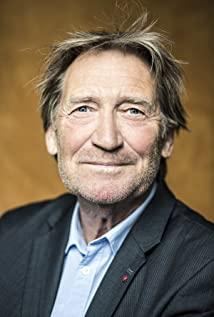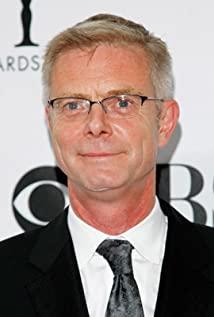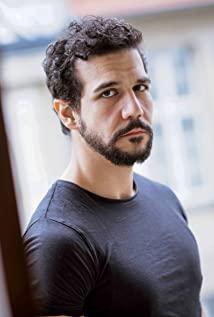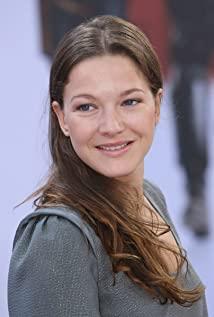an unjust war makes them both morally and legally "sinful."
one. Reading to a lover is actually a very romantic thing
. A song dedicated to lovers all over the world once sang: The most romantic thing I can think of is to grow old with you. Since then, "it" has become a must-have phrase for lovers to make a pledge.
And recently, with the worldwide popularity of the movie THE READER, based on the novel of the same name, people are inspired by a new romance. That is for his lover, willing to be a reader.
Someone can be downstairs in the dormitory, playing the guitar, and calling out the name that haunts me in my heart; someone can sing a little love song that envy others at a concert that attracts everyone's attention, and dedicate it to her in a certain corner; In the Niubei Mountains, Linghu Chong and Ren Yingying, who have retreated to the rivers and lakes, have not yet left for the piano and flute ensemble. . . . . . Has anyone ever defined what exactly counts as romance? Two people who love each other can be romantic if they think it is romantic. Love is a very personal thing between two people. If you think listening to your lover reading aloud or being a reader is happy, why not let our romance begin like this?
In The Reader, 15-year-old Michael falls in love with 36-year-old Hannah.
If there must be a valid reason to fall in love with a stranger, I personally think that in the first half of the movie, it should be attributed to the boys' Oedipus. It is said that most men have or still have this habit, and in psychoanalytic terms it is called the Oedipus complex, the name of a hero whose murder must have been heard by anyone who has read Greek mythology. A tragic story of a father marrying a mother. In fact, this type has become the favorite magic weapon of directors and screenwriters, and it has been tried and tested on TV and movie screens.
However, this is only the first half of The Reader.
two. War made us all sinners, not just this damn love
If "The Reader" only stops at the passionate sex scenes in the first half, and the viewers of sex-eating men and women are only satisfied with the pleasures of those beds, then this film can only fall with the thousands of films produced every year. In this vast world film industry, those without any influence will retire in front of the world. But the fact is that this work not only won the favor of Oscar, but also won the respect of peace-loving people all over the world. People admire the attitude of the Germans towards history. And Japan, which is close to us, is very much like the Hannah in the movie who blindly avoided the fact that she was illiterate at first - obliterating the facts and unwilling to admit history! Although we use an analogy here, we need to know the difference. An illiterate secret is private, and at most we are tortured in the depths of our hearts.
In this way, a great work was born, under love and sin; under human nature and morality, in the background of this tragic history and the road of redemption that later generations have embarked on.
The author of the original book has this passage: "The pain of my love for Hannah is partly the fate of our generation, the fate of the Germans. It is more difficult for me than others to escape this fate, and it is more difficult than others. It is easy to overcome this fate."
This is a line that is not in the movie, but it is the one that best expresses the true idea of this work.
As the author of this book said. This is a book about the relationship between the post-war generation and the war generation, about guilt.
three. If that doesn't count as loving
a boy, falling in love with someone 21 years older than him. A woman who could be his mother, some say it's love, it's their life;
a mother-like woman a boy falls in love with like a man, and unfortunately she's a sinful Nazi, that's of course love, it's them fate.
Suddenly I remembered the kiss that Michael used to prove to the waiter that Hannah was her lover and not her mother. Although it was not lingering and affectionate, it had enough power to move people. What we see is not only the simple love between men and women, but when we think of the author's interpretation of this book, what is more touching is the love of the young generation after the war for this country and nation, even if she was so guilty tired.
It is precisely because of this deep feeling that the younger generation of conscience has been scrutinized from the depths of their hearts. They choose to force themselves to face even the most unbearable history, just as Michael faces the childhood love in the movie, Hannah. Face yourself as a "shameful" illiterate.
Many friends like to ask after watching this movie: Is this a romance, an anti-war movie, or something else?
Regardless of the author's intentions, what we see in the film is all love, love between men and women, Oedipus complex, and even the deepest feelings for our own nation. . . They are all like this until death, just like the hero and heroine in the movie.
If none of the above is love, what else can we expect from humans?
Four. A note
about the poster reads: HOW FAR GOULD YOU GO TO PROTECT THE SECRET?
Regarding secrets, people always have past events that they do not want to be known, mentioned or touched, but this secret is limited to personal privacy, and there is no Great trouble.
But if it is a secret that the world knows, do some people think that tampering with teaching books can prevent outsiders from knowing it?
Do you think this is love?
It's a big deal at all!
View more about The Reader reviews











